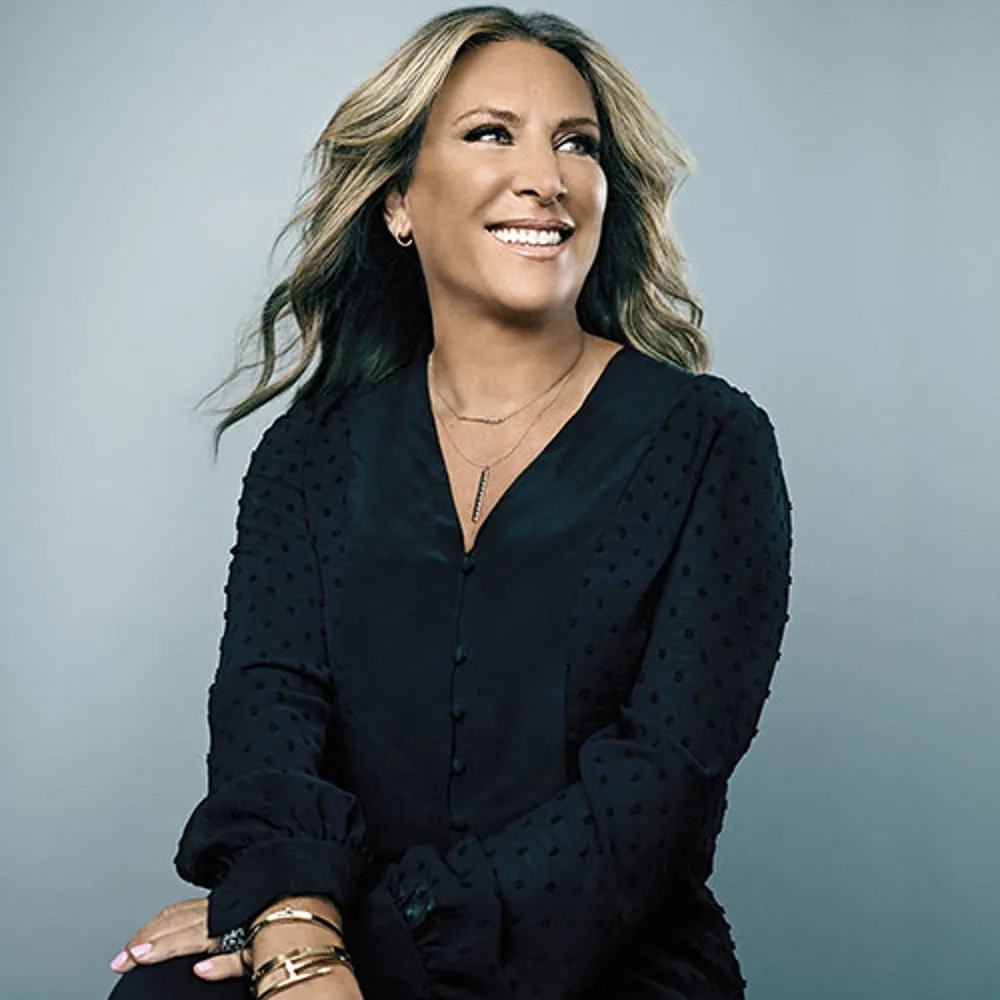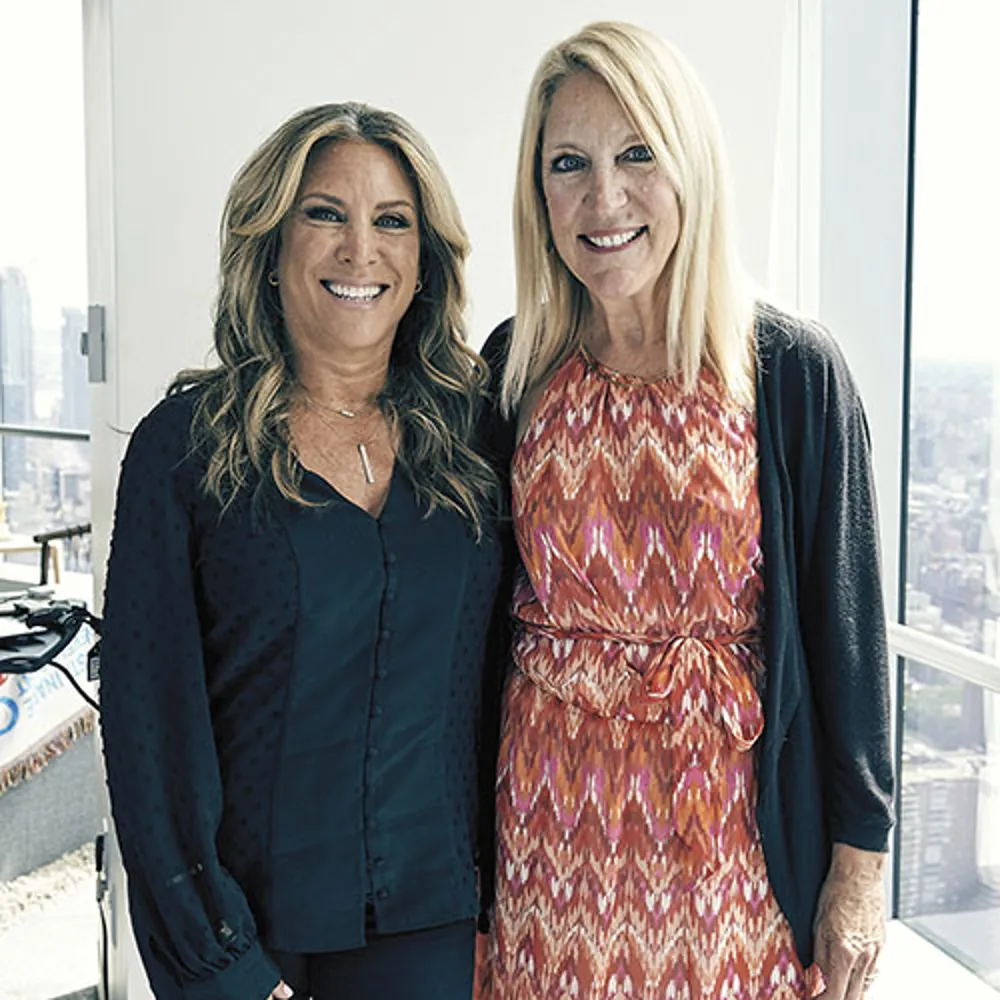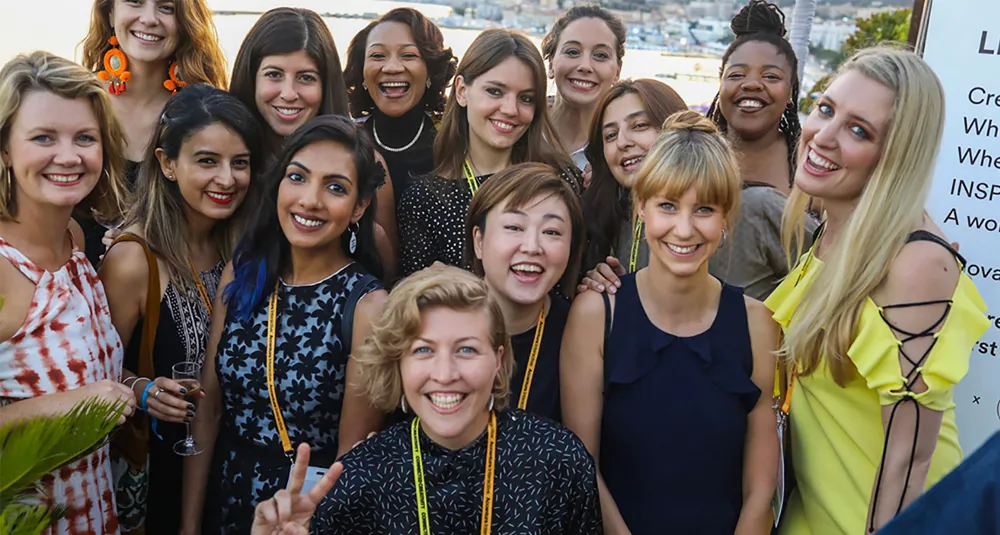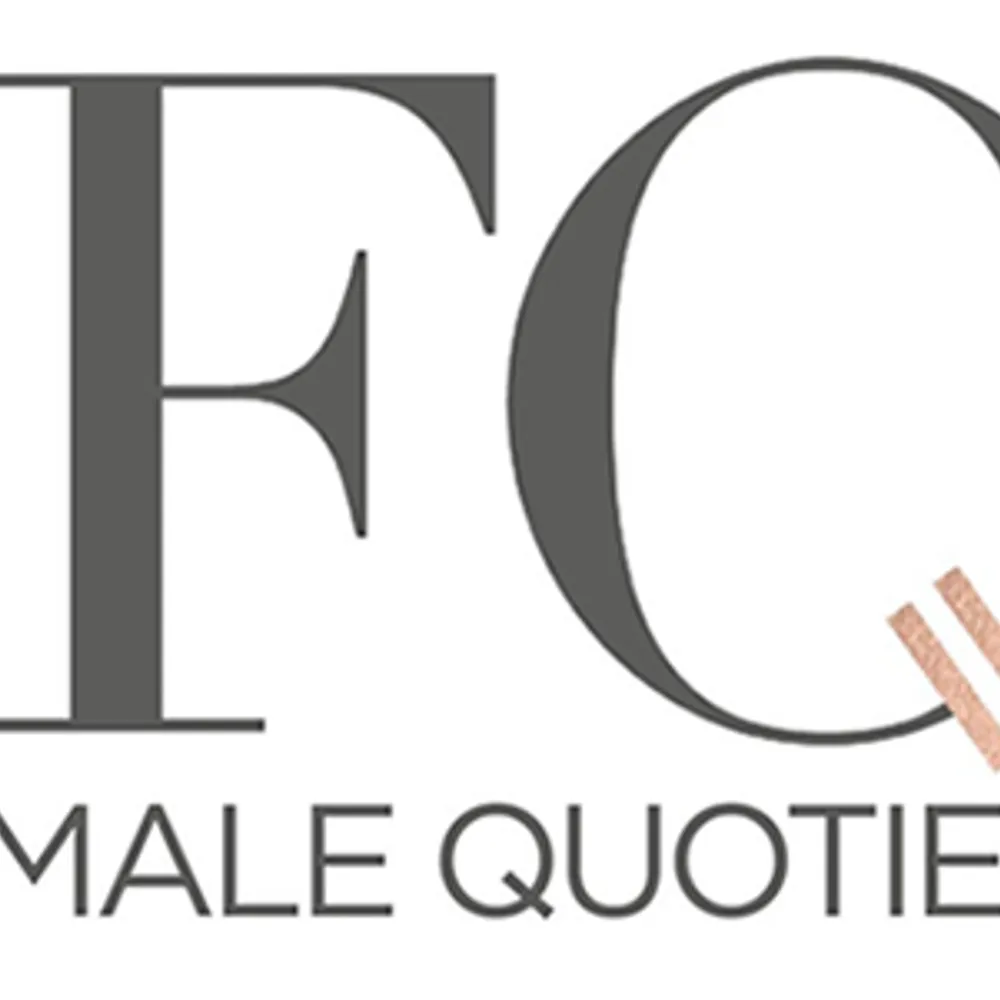Female Quotient CEO Shelley Zalis on Being Bold, Brave and Fearless
September 19, 2019
- Author: Cindy Stevens


September/October 2019
More articles in this issue:
Shelley Zalis, CEO of the Female Quotient (The FQ) is a passionate advocate leading a movement towards gender equality in the workplace. With offices in LA and New York and a staff of 28 (and growing), The FQ is making its mark on the world. Their office space at 10 Hudson Yards located on the 48th floor, has a dazzling panoramic view of Manhattan and New Jersey. The view seems to exemplify Zalis who is undeniably a force for change. In 2000, she left the corporate world to become a pioneer in online research. She created OTX (Online Testing Exchange), which in nine years became one of the largest global research companies. She sold OTX to Ipsos in 2010, where she led innovation in more than 80 countries at Ipsos OTX.
She then launched The Female Quotient and Girls’ Lounge (which has evolved into the FQ Lounge) to support and mentor women to find their voice, embrace their feminine leadership powers and work to transform corporate culture. Today, Zalis works with Fortune 500 companies to advance gender equality. The FQ’s signature pop-up experience, the FQ Lounge (formerly the Girls’ Lounge), brings a ‘Home of Equality’ to major conferences, companies and college campuses worldwide and attracts leaders at events including the World Economic Forum, Cannes Lions International Festival of Creativity and CES. The FQ team aims to further expand lounges in Saudi Arabia, the NBA and the New York Comedy Festival. Through this movement, Zalis has connected more than 18,000 women in business and created the largest female-led community to change workplace culture. She recently passed the three-million-mile mark on United Airlines, a testament to her global networking.
She also is the co-founder of #SeeHer, a movement led by the Association of National Advertisers (ANA) to increase the accurate portrayal of women and girls in advertising and media. She sits on the Board of Directors for MAKERS, ColorComm and Dress for Success and has received many honors including the Ernst & Young Entrepreneur of the Year Award and a Matrix Award, which honors extraordinary female leaders in the communications industry. Zalis has also been inducted into the IRTS Hall of Mentorship and been honored by Girls Inc. for her achievements. In addition to all of these accomplishments, she is also a wife and a mother of three.
She sat down with i3 in late August to talk about the importance of building relationships, including becoming the Official Equality Partner for CES 2020. Her tote sums it up, ‘Chief Troublemaker.’ “You have to break the rules to write new ones.” She explains, “This really is our moment; when purpose meets passion, you are unstoppable.”

Before the Female Quotient, you ran OTX, a successful research firm, then sold it to a consulting firm called Ipsos. Why did you create the FQ Lounge [formerly known as the Girls’ Lounge]?
I felt it was a really important place for women to be with other women so that they don’t have to apologize, to encourage them to bring their femininity to the workplace, and to collaborate. There is a boys’ club where women never felt comfortable, so we decided to create a Girls’ Lounge more than six years ago where everyone feels like they belong. We discovered two things: there is power in the pack and you realize your strengths make the table better. Today we have connected more than 18,000 corporate women and female entrepreneurs, and evolved the name to the FQ Lounge, where women are still the majority, but men feel welcome and comfortable.
How did you develop your business, particularly the global nature of your work?
A I sold my online research company OTX to Ipsos, where I ran global innovation for 83 countries. Ipsos was sponsoring the Girls’ Lounge at the time. It was a heartbeat moment where I knew that I had to take the Girls’ Lounge, which today is the FQ Lounge, from a company initiative to an industry collaboration. There are times when you have to believe in your gut. The easy way is to default and follow. The hardest way is to take a risk. I had to follow my purpose and passion to take it to where it needed to be.
What is your business model?
We created a sponsorship model which is really a partnership model where it’s not my lounge, it’s not your lounge, it’s our lounge collectively. We say we started as a slumber party because we were all sharing rooms. And that sort of became the model. I don’t have the money to fund lounges across the world at $4 million but everyone is welcome and everyone bands together to fund this home of equality. With the Time’s Up and #MeToo movements, everyone is now focusing on women in the world. We realized that true change happens through leadership. It was that heartbeat moment again where I understood gender equality is not a female issue. It is a social and economic issue. You can’t just have women talking to women. We have to make it a social and economic issue which becomes a leadership issue which becomes an ROI bottom line issue. That is where we need to start rewriting the rules and activating solutions for change and measurement for accountability. In January 2015, we put the umbrella name, the Female Quotient, on top of it and we really operate in three core areas. We have FQ Lounges of equality with upwards of 60 lounges a year at major industry conferences and at companies. We are rolling out an entire business to do pop-ups on campuses to attract younger women to help corporations through entry level talent to have women find their voice, stand in their power, own their ambition and bring their best selves to the table. We have a whole social influencer team of Gen Z and we are rolling out our podcasts by Gen Z for Gen Z. And the third key pillar is FQ Media which is where our content lies.
What are your thoughts on the #MeToo movement?
The #MeToo movement has done an amazing job of breaking the silence and creating consequences for bad behavior. We were ahead of these things in the workplace, but we can’t take credit for it. It took that brave spirit to speak up and then get the New York Times to push it out for #MeToo to grow from a moment to a movement with more women and more voices. Now it is time to create positive proactive solutions for change inside of corporations. If you put people on the defensive, then you end up going backwards. About 50% of men today don’t want to work with women because they are afraid they will do or say the wrong thing, according to a survey by LeanIn.org. When you put people on the defensive, you will never win.
What do you mean about the power of the pack?
A woman alone has power, collectively we have impact. We’re better together. Study after study shows women who support women are more successful in business. Leadership is predominately men, but women working together is how we’ll flip the script — and the balance — to create the change we want to see. The power of the pack is the power of these relationships.

Can you talk about the relationships you have formed?
I’ve always felt that building relationships is the most important aspect of building a business. I’m so glad that I listened to my intuition and defined my own way of doing business because I know relationships have been the biggest secret to my success. We not only broke some rules and had a ton of fun, but also created a movement where we now have a community of women globally. No name tags are required in the lounge, because it encourages each of us to learn something new about people other than their title and where they work. It also becomes the place where everyone, regardless of level, can spend quality time together.
Why do you refer to women as “girls” and how have you worked to redefine female leadership as collaborative instead of competitive?
I reclaimed the word “girl” as a mindset. It’s about being bold, brave and fearless. It’s about girlfriends, and girls’ girls, and supporting one another. It’s about collaboration not competition. We’ve created this community through experiential pop-ups at industry conferences within corporations as well as on college campuses. We need to reverse the stereotype that women don’t support other women. There is research that shows women benefit from collaboration over competition. New research in the Harvard Business Review shows that while both men and women benefit from having a network of well-connected peers across different groups, women who also have an inner circle of close female contacts are more likely to land executive positions with greater authority and higher pay, while there was no link found for the success of men in terms of the gender composition of their inner circles.
Have you seen changes globally?
We are starting to see a lot of people talking about it because it is a popular conversation. But we are seeing a lot of committed leaders truly holding hands and going together. And it’s scary and a little uncomfortable but that is the stage we are in right now. I always say, “walk the talk”. But not just on the outside but from inside out. I think corporations are realizing that they can create the greatest campaigns and get attention, create awareness and get awards, but you have to walk the walk and you have got to be equality fit from the inside out. It’s a process. It’s a journey, it’s a step change, but when you do it all together, it’s less scary.


What is the role of technology in creating a more diverse environment?
As companies use AI applications to make hiring and promotion decisions, it’s important to increase the proportion of women in AI development and ensure algorithms are not biased against women. Companies that use AI technology in the recruiting and promotion process report improvements in
gender diversity. AI could be applied to the analysis of internal workforce data to make recommendations that would help narrow gaps in recruiting, retention and advancement of women. AI and other technology can be used to lighten the burden of home and family care, which disproportionately falls on women and can hinder their ability to invest in demanding careers. One app to watch is Textio. It uses AI to analyze job descriptions to help neutralize language that might deter a diverse set of candidates. For example, terms such as “aggressive” may prevent many women from applying, so you might replace that word with “passionate.”
How does the FQ use bootcamps to achieve equality and gender diversity in their workforce?
We are advancing equality in the workplace and in media through next-step solutions for change, measurements for accountability and helping companies become equality fit. Hacking Equality Bootcamps offer customized experiences to provide companies with the tools they need to become equality fit – both in principle and in practice. Our bi-annual publication called the Modern Guide to Equality is a one-of-a-kind playbook featuring the latest research, case studies and expert leadership interviews to make parity a reality in the workplace. Together with ANA [Association of National Advertisers], we developed and are leading the #SeeHer movement to accurately portray women and girls in media so that by 2020, they see themselves reflected as they truly are.
Can you tell us about your plans at CES 2020?
A We’re thrilled to be working with CES. Within the lounge, we’ll be featuring key female leaders and up-and-coming female leaders in tech. We will feature equality partners and do our annual floor tour with more than 200 women in official partnership with CES. We’ll also be working with
CTA throughout the year to help advance equality for women in tech. One of the most important things for us is focusing on the future and creating this pathway for evolution and change. And that is how we truly make a difference in the world.
Join our community of innovators and shape the future of technology.



